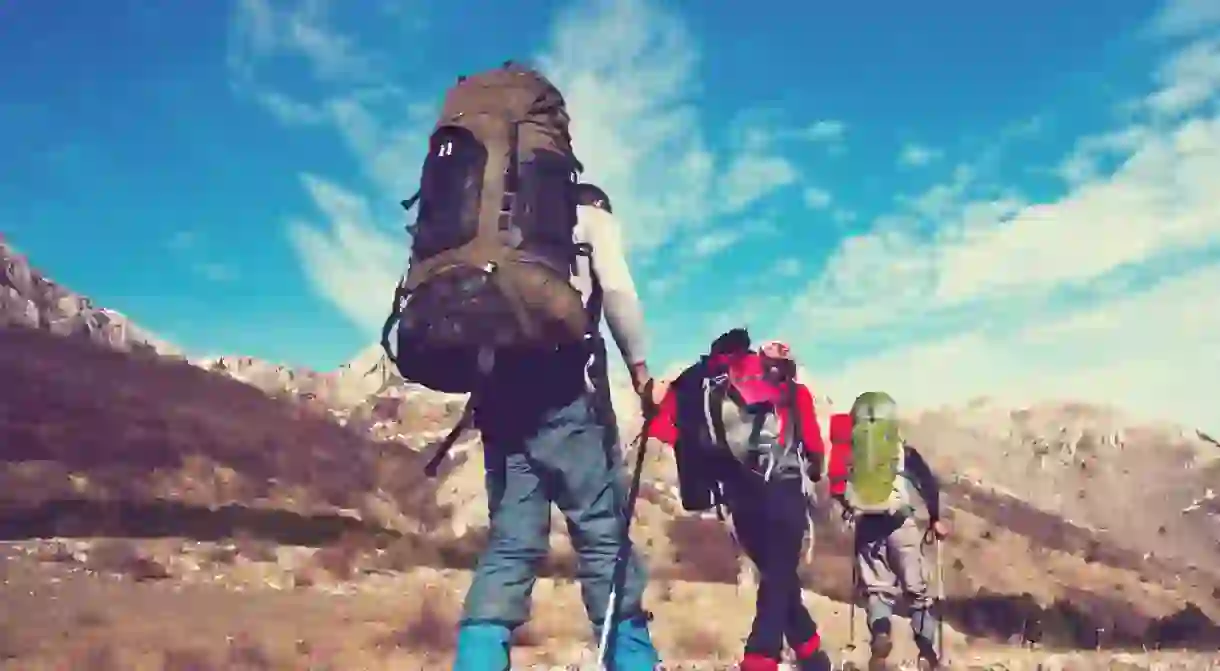The Ultimate Packing List for Bolivia

Bolivia is a vast and diverse nation. Intrepid travelers traverse cold, windy highland plains, camp among snowy mountain peaks and swelter in steamy Amazonian jungles. For this reason, it’s important to carry clothing, equipment and supplies for all climates when traveling through this incredible country. Read our guide on what to pack to be properly prepared for the varying climates of Bolivia.
Clothing
Warm clothes are a must as many of Bolivia’s main attractions are located in the cold, windy altiplano (highland plains). Windproof jackets are a great option as they don’t take up much space and provide solid protection. Be sure to save some space in your bag because shopping for an assortment of alpaca jumpers, scarves, gloves, beanies and ponchos is all part of the experience. Those paying a visit to the humid lowlands should pack some hot weather clothing as well. Long sleeved, light weight breathable numbers work best as they provide protection from the sun and mosquitoes.

Shoes
Hiking boots are a must for anyone doing even a little bit of trekking. Make sure they fit properly and have been worn in because nobody wants blisters on a three-day trek. Flip-flops are great casual wear in warmer environments and are easy enough to carry. Take a pair of decent casual shoes for everyday use or nights out in town. Dress shoes and high heels are not worth the effort as they aren’t required in even the fanciest clubs.

Money
Pack at least two debit or credit cards, preferably one Visa and one MasterCard. Very few places accept credit card payments, so get used to relying on ATMs. Finding a bank that doesn’t charge an international withdrawal fee, such as Charles Schwab (USA), is well worth the time invested. Keep a card and some emergency cash stashed away separately in your luggage as a contingency. US dollars and Euros can be exchanged for decent rates in banks and exchange houses, although it’s unwise to carry excessive amounts of cash.

Electronics
Most tourist orientated accommodation has wifi these days, so it’s worth bringing a mobile or tablet to keep in touch with folks back home. Having said that, the general rule is don’t bring anything you can’t afford to lose because fancy looking electronics are tempting targets for would-be thieves. Take out travel insurance on your gadgets and keep a close eye on them at all times. Bolivia has 220V power points with both type A and C inputs.

Medical supplies
All but the most unusual medicines are readily available in Bolivian pharmacies. However, it’s nice to have the necessary medication on hand to avoid trundling around town looking for a chemist who understands your sign language interpretation of diarrhea. A good first aid kit includes band aids, bandages, tape, antiseptic, pain killers, anti-inflammatory pills, antibacterial gel, antihistamines, loperamide, mosquito repellent, sunscreen and aloe vera.

Toiletries
By all means bring your own, but be aware of TSA regulations regarding carrying liquids onto airplanes. If you run out, the larger Bolivian pharmacies tend to be well stocked.
Outdoor equipment
Tents, sleeping bags, mats, trekking poles, portable stoves and even clothing can be hired from the many outdoor stores found in major tourist areas. Quality can be hit and miss, so make sure to review everything thoroughly before setting off. Bringing everything from home, with the exception of boots and clothing, is only worth it for those who plan to camp regularly.

Books
Long bus trips provide a great opportunity to catch up on some reading, so bring a few books or a Kindle. Marching Powder by Rusty Young gives a captivating insight into the Bolivian penal system and makes for fanstastic reading while traveling the country.
Travel documents
American passport holders need a tourist visa. Take photocopies of both passport and visa in case they get lost. Most European countries, Australia and New Zealand do not require a visa, but check with your local embassy before you travel.
A sense of adventure
Things don’t always run smoothly in Bolivia so take any setbacks in your stride and consider them part of the adventure. It’ll all be worth it in the long run.













